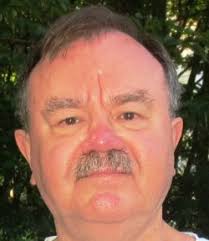When I was a university student, many moons ago, few courses in modern history were without a book, or at least a number of scholarly articles, by Walter Laqueur, assigned as part of our readings. Laqueur, who died September 30, at the age of 97, was a giant in his field.
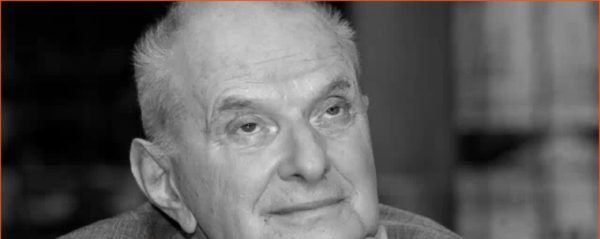
A German Jew who fled Adolf Hitler’s Germany, he was part of an era when historians wrote on a broad range of topics and countries. In his case, these included Nazi Germany, the Soviet Union, Israel, and modern terrorism. All these issues and places in one way or another had affected his own life.
At the time of his death, Laqueur was a retired professor at Georgetown University and chairman of the International Research Council of the Center for Strategic and International Studies in Washington.
He was born in Breslau, the city known today as Wroclaw, Poland, on May 26, 1921. He was 17 in 1938 when he left Germany, days before the Nazi-led Kristallnacht pogrom against Jews, and managed to gain entry to British-administered Palestine as a student. His parents perished in the Holocaust.
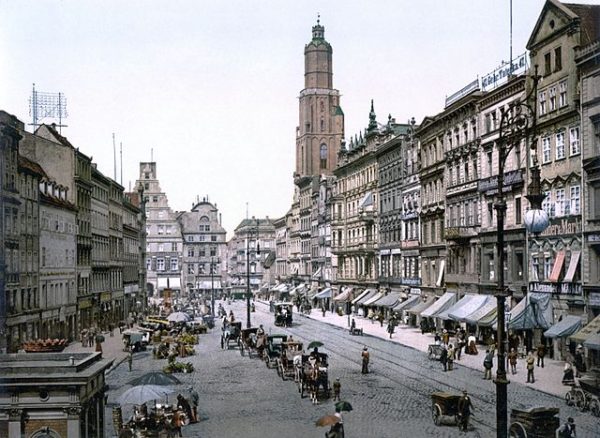
Laqueur worked as a journalist in Israel before moving to London in 1955, where, along with another eminent German-Jewish historian, George Mosse, he founded and edited the Journal of Contemporary History and other publications.
From 1965 to 1994, he was director of the London-based Wiener Library for the Study of the Holocaust and Genocide, a leading archive and repository of documents.
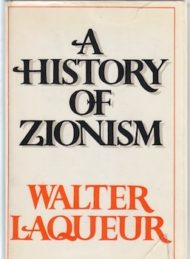
Some of Laqueur’s works will remain classics, including his 1972 A History of Zionism and A History of Terrorism, published in 1977. Both remain in print and are as relevant as the day they were published.
A History of Zionism traces the movement from its beginnings, with the emancipation of European Jewry in the wake of the French Revolution, to 1948, when the Zionist dream became a reality. It describes the contributions of such notable figures as Benjamin Disraeli, Moses Hess, Baron Edmond de Rothschild and Sir Herbert Samuel, as well as the achievements of Theodor Herzl, Chaim Weitzmann, and David Ben-Gurion.
In A History of Terrorism, Laqueur describes the trajectory of political terror from 19th-century Europe, through the anarchists of the 1880s and 1890s, the left- and right-wing clashes during the 20th century, and the operations of various Middle Eastern and other groups today. He also examines the sociology of terrorism, including its funding, intelligence gathering, weapons and tactics, informers and countermeasures, and the crucial role of the media.
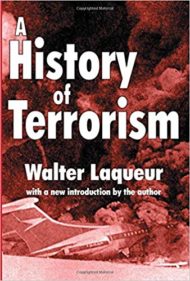
The book was a companion to Guerrilla Warfare, published in the same year, which sought to provide a critical interpretation of guerrilla theory and practice throughout history.
He wrote dozens of other books, on a wide array of subjects, including antisemitism, Communism, fascism, the Weimar Republic, Nazi Germany, the Holocaust, the Cold War, and the Soviet Union.
Along with Richard Breitman, Laqueur wrote Breaking the Silence in 1986. It chronicles the efforts of German industrialist Eduard Schulte, a business leader who risked his life to gather information about such Nazi activities as the revised date of the German attack on Poland and the Nazi plan for the mass extermination of European Jews. It also recounts the contributions of the Germans who aided Schulte.
Seemingly apolitical, given to hunting and leading an industrialist’s life, Schulte was moved by an intense sense that the Nazis would bring about Germany’s ruin. Using his community of contacts, Schulte revealed the terrible secrets of genocide. Forced to flee to Switzerland to evade the Gestapo, Schulte lived out his life quietly in postwar Germany.

When the Soviet Union disintegrated in 1991, Laqueur predicted the emergence of “an authoritarian system based on some nationalist populism.” And this indeed came to pass.
Putinism: Russia and its future with the West, published in 2015, explained how three long-standing pillars of Russian ideology — a strong belief in the Russian Orthodox Church, a sense of Eurasian “manifest destiny” and a fear of foreign enemies — continue to exert a powerful influence on the Russian people.
Laqueur’s last book, The Future of Terrorism: ISIS, Al Qaeda, and the Alt-Right, written with Christopher Wall, was published this year. There, he cautions that the Islamic State’s short-lived successes in creating a caliphate demonstrated that “true believers now have a model that they can hope to achieve and acquire, because it has been done.”
When he visited his boyhood home after World War II, he wrote in his 1992 memoir, Thursday’s Child Has Far to Go, “the world I had known as a boy no longer existed, and as I tried to remember the people I had known when I was 16, I realized that most of them had died a violent death. “Some were killed in the ruins of Stalingrad,” he added, “others in Auschwitz, some in 1948 in the battles for Palestine.”
No one could call Walter Laqueur a starry-eyed idealist. In his long and productive life, he had lived through too many historical tragedies to assume that there was a “right side of history” and that the world was becoming a more just and peaceful place.
In a 2013 interview with the German magazine Der Spiegel, he suggested that Europe would continue to decline. “The possibility that Europe will become a museum or a cultural amusement park for the nouveau riche of globalization is not completely out of the question.”
In one of his last works, Laqueur called himself a “veteran pessimist”
We will miss his steely-eyed insights into politics and human nature.
Henry Srebrnik is a professor of political science at the University of Prince Edward Island.
